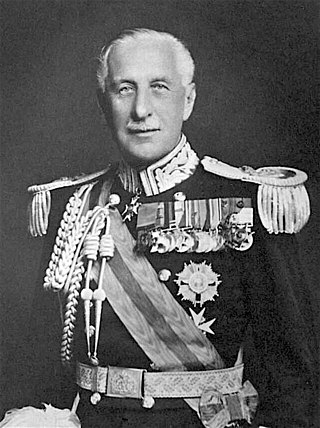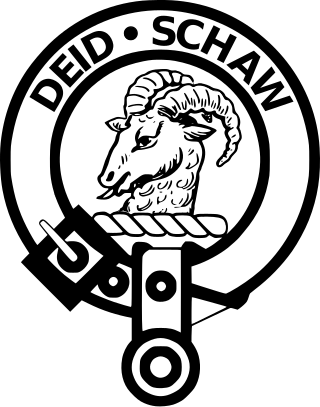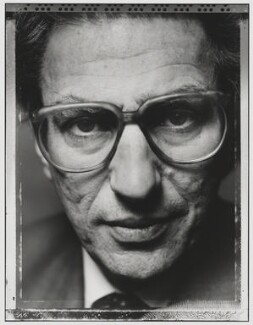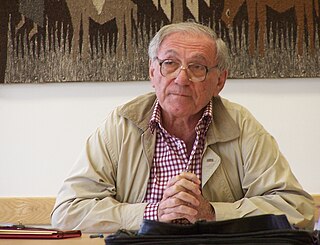
Fundamentalism is a tendency among certain groups and individuals that is characterized by the application of a strict literal interpretation to scriptures, dogmas, or ideologies, along with a strong belief in the importance of distinguishing one's ingroup and outgroup, which leads to an emphasis on some conception of "purity", and a desire to return to a previous ideal from which advocates believe members have strayed. The term is usually used in the context of religion to indicate an unwavering attachment to a set of irreducible beliefs.

Brigadier General Alexander Gore Arkwright Hore-Ruthven, 1st Earl of Gowrie, was a British Army officer who served as the 10th Governor-General of Australia, in office from 1936 to 1945. He was previously Governor of South Australia (1928–1934) and Governor of New South Wales (1935–1936).
Lord Ruthven of Freeland is a title in the Peerage of Scotland. It was created in 1651 for Thomas Ruthven. He was the grandson of Alexander Ruthven, younger son of William Ruthven, 2nd Lord Ruthven. The letters patent creating the peerage is said to have been burnt with the House of Freeland in 1750, and the remainder to the peerage is not accurately known. However, as the dignity was retained on the Union Roll, it has been presumed that the honour was to heirs-general. Lord Ruthven of Freeland was succeeded by his son, the second Lord. He never married and on his death in 1722 the title and estates devolved by entail upon his youngest sister, Jean. On her death the estates passed to her nephew Sir William Cunningham, 3rd Baronet, of Cunninghamhead. He was the only son of Anne, elder sister of the third Lady Ruthven and also heir of line. He assumed the surname of Ruthven upon the death of his aunt, but lived only six months after his accession to the estates and never assumed the title.

Dame Freya Madeline Stark was a British-Italian explorer and travel writer. She wrote more than two dozen books on her travels in the Middle East and Afghanistan as well as several autobiographical works and essays. She was one of the first non-Arabs known to travel through the southern Arabian Desert in modern times.
Herbert Richard Hoggart was an English academic whose career covered the fields of sociology, English literature and cultural studies, with emphasis on British popular culture.
John Ruthven, 3rd Earl of Gowrie, was a Scottish nobleman who died in mysterious circumstances, referred to as the "Gowrie Conspiracy", in which he and/or his brother Alexander were attempting to kill or kidnap King James VI of Scotland for unknown purposes. The king's retinue killed both brothers during the attack, and the king survived.

A History of the Arab Peoples is a book written from 1991 by the British-born Lebanese historian Albert Hourani.

The Clan Ruthven is a Lowland Scottish clan.

Alexander Patrick Greysteil Hore-Ruthven, 2nd Earl of Gowrie,, usually known as Grey Gowrie or Lord Gowrie, was an Irish-born British hereditary peer, politician, and businessman. Lord Gowrie was also the hereditary Clan Chief of Clan Ruthven in Scotland. He was educated at Eton and Oxford, and held posts in academia for a period, in the US and London, including time working with poet Robert Lowell and at Harvard University.
Lyndall Gordon is a British-based biographical and former academic writer, known for her literary biographies. She is a senior research fellow at St Hilda's College, Oxford.
"Islamofascism", first coined as "Islamic fascism" in 1933, is a term popularized in the 1990s drawing an analogical comparison between the ideological characteristics of specific Islamist or Islamic fundamentalist movements and short-lived European fascist movements of the early 20th century, neo-fascist movements, or totalitarianism.

Sadiq Jalal Al-Azm was a Professor Emeritus of Modern European Philosophy at the University of Damascus in Syria and was, until 2007, a visiting professor in the Department of Near Eastern Studies at Princeton University. His main area of specialization was the work of German philosopher Immanuel Kant, but he later placed a greater emphasis upon the Islamic world and its relationship to the West, evidenced by his contribution to the discourse of Orientalism. Al-Azm was also known as a human rights advocate and a champion of intellectual freedom and free speech.

P. J. Kavanagh FRSL was an English poet, lecturer, actor, broadcaster and columnist. His father was the ITMA scriptwriter Ted Kavanagh.
Pamela Margaret Cooper, known as the Hon. Mrs Patrick Hore-Ruthven between 1939 and 1945, and as Viscountess Ruthven of Canberra between 1945 and 1952, was a British courtier, campaigner for refugees, and humanitarian.
The Hon. Alexander Hardinge Patrick Hore-Ruthven was a British soldier and poet. He was born in Quetta, British India, the sole surviving child of Alexander Hore-Ruthven and Zara Eileen Pollok.
Islamic modernism is a movement that has been described as "the first Muslim ideological response to the Western cultural challenge," attempting to reconcile the Islamic faith with modern values such as democracy, civil rights, rationality, equality, and progress. It featured a "critical reexamination of the classical conceptions and methods of jurisprudence", and a new approach to Islamic theology and Quranic exegesis (Tafsir). A contemporary definition describes it as an "effort to re-read Islam's fundamental sources—the Qur'an and the Sunna, —by placing them in their historical context, and then reinterpreting them, non-literally, in the light of the modern context."

Zara Hore-Ruthven, Countess of Gowrie was the Anglo-Irish wife of the 1st Earl of Gowrie, Governor of South Australia 1928–34, Governor of New South Wales 1935–36 and the longest serving Governor-General of Australia 1936–44. She was renowned for her work in promoting the welfare of children in Australia, and the Lady Gowrie Child Centres were named in her honour.
Carol Rumens FRSL is a British poet.

Nicholas Davies is a British investigative journalist, writer, and documentary maker.
Religious liberalism is a conception of religion which emphasizes personal and group liberty and rationality. It is an attitude towards one's own religion which contrasts with a traditionalist or orthodox approach, and it is directly opposed by trends of religious fundamentalism. It is related to religious liberty, which is the tolerance of different religious beliefs and practices, but not all promoters of religious liberty are in favor of religious liberalism, and vice versa.








